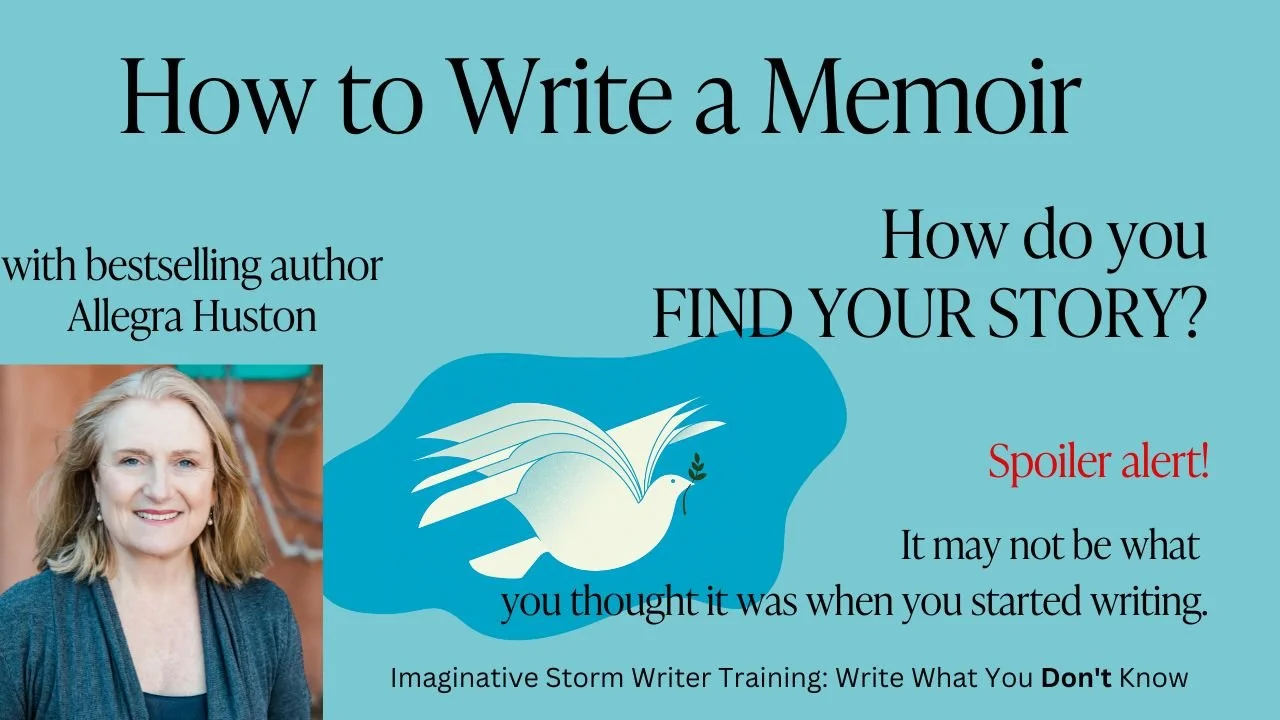Writing Advice:
How to Write (a) Memoir
What are those parentheses doing in the title of this page? Well, they’re suggesting that you can write memoir without writing an actual memoir. Let’s say you’re creating a cookbook and you want to include how you learned a recipe—you’re writing memoir. Or an article on car maintenance or skiing or whatever your expertise or enthusiasm is: including some material about your experience will make your piece more lively and engaging to a reader.
Or, let’s say you’re writing “autofiction,” or fiction based on your own life. This is memoir in disguise, with permission to alter the truth. In fact, all novelists draw from their own experiences for their stories, since we are all our own best source of information about human nature.
How do you write a memoir?
Let’s say you want to write an actual memoir: a full-length book telling a story that happened to you. You probably have a lot of questions, so we’ll try to answer at least some of them.
-
A memoir is like a novel: it’s a story with a beginning, middle, and end, in which you are the main character. An autobiography is the record of someone’s life to date: usually a famous person whom people want to know about.
-
Most great memoirs are written by people who weren’t famous before writing them. Mary Karr, Jeannette Walls, Tobias Wolff…. You are absolutely entitled to write a memoir, if you have a story to tell.
-
People care about characters in books, and they’re not even real. So you’re starting with an advantage! They’ll care about you for the sane reason they care about characters in novels: because they identify with your desires and needs and struggles, and are intrigued by your account of how you handle what life threw at you.
-
There’s no rule about when you should or shouldn’t write a memoir. If you’re young and you have a story to tell that reaches some kind of conclusion, go ahead and tell it!
-
Big question! Most memoirs are in some way a story of transformation. So asking yourself, ”What was my transformation?” is a great place to start.
-
You don’t have to know when you start writing as Allegra explains in the video “Do You Need an Outline?” below. Generate material and allow your imagination to surprise you by making connections you didn’t realize were there. Likely some incidents you think are very important will turn out not to be, and others that seem trivial or forgotten right now will become turning points. This is why writing a memoir is an exciting exploration: your story may not be quite what you thought it was.
Imaginative Storm Memoir Series
Check out our Memoir Series: 10 stand-alone half-day Zoom workshops on various aspects of writing memoir. You can pick and choose, or take them all to get a fully rounded exploration of how to write a memoir using the Imaginative Storm method.
Each workshop is limited to 10 participants, so we can give everyone individual attention.
We’ll work with prompts to generate material that will give you new perspectives on the story you want to tell and its various components: narrative, character, setting, etc. The workshops are based the 10 sessions of our book Write What You Don’t Know, exploring each topic in far greater depth as it relates to writing memoir.
Read full descriptions of what you’ll learn in each workshop on our Memoir Series page.
The Manageable Memoir
Not all memoirs have to be full-length books, with a continuous plotline. We’ve developed a method for creating a kind of collaged memoir, inspired by Imaginative Storm co-founder James Navé’s book 100 Days: Poems After Cancer.
We offer The Manageable Memoir as a single-session Zoom course or a self-paced online course—also short and manageable! Like James, you can build a memoir in 100 days or less.
Want some more ideas?
These videos by Imaginative Storm co-founder Allegra Huston will give you some more ideas about how to approach writing your memoir. Allegra teaches a five-day memoir intensive and is currently working on a book and course about how to write a memoir. You’ll also find great prompts to help you write your memoir in the book of the Imaginative Storm method, Write What You Don’t Know.
Allegra’s own memoir, Love Child: A Memoir of Family Lost and Found, was highly praised by critics and other writers including Salman Rushdie, Simon Schama, and Susanna Moore. As an editor, she has worked on memoirs by many distinguished writers.






